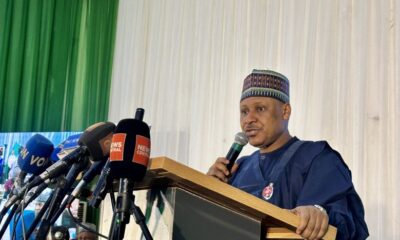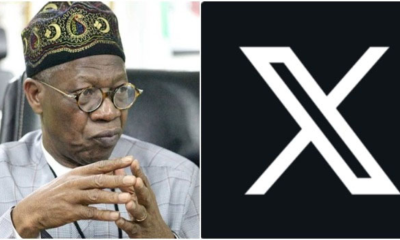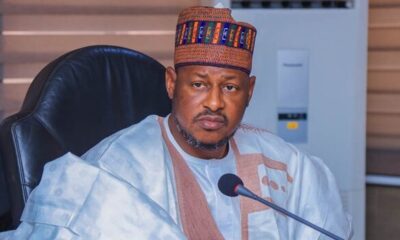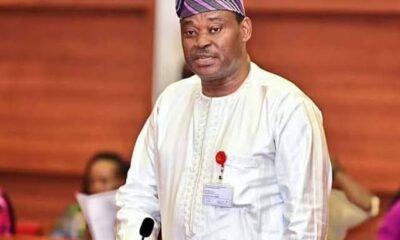Business
FG open to refinery sale if partners emerge – Official

The Federal Government has expressed readiness to sell off Nigeria’s state-owned refineries as part of ongoing reforms to attract fresh investment, enhance efficiency, and foster competition in the nation’s petroleum downstream oil sector.
The Special Adviser to the President on Energy, Olu Verheijen, disclosed this during an interview with Bloomberg TV anchor Joumanna Bercetche on the sidelines of the Abu Dhabi International Petroleum Exhibition and Conference.
Verheijen said that relinquishing control of the refineries operated by the Nigerian National Petroleum Company Limited remains one of several reform options under consideration by the Tinubu administration.
She, however, noted that the refineries, long sustained by government subsidies, would only be let go if the right technical and financial partners are found. “Letting go of them is a possibility. It’s one of the options that you have to consider if you find the right technical partner with the right capital,” Verheijen stated.
She added that the facilities had for decades been sustained by government subsidies, which distorted the market and discouraged private sector participation. “The refineries have largely been sustained by subsidies, but now that we’ve removed the subsidies, we’ve removed the distortions in that market,” she said.
Nigeria’s four state-owned refineries, in Port Harcourt, one in Warri, and another in Kaduna, have a combined installed capacity of 445,000 barrels per day. However, the plants have remained largely dormant for decades despite repeated turnaround maintenance projects that cost taxpayers billions of dollars.
The country continues to import refined petroleum products, making it one of the few major oil producers dependent on fuel imports for domestic consumption.
According to Verheijen, President Bola Tinubu’s administration is focused on restoring transparency, market efficiency, and commercial viability across the energy value chain.
She said the government’s new market-driven approach seeks to create a competitive environment where both public and private refineries operate under similar standards without undue subsidy interference.
Last week, the NNPC said it has begun the process of identifying technical equity partners capable of managing and operating its refineries in line with international best practices.
In a post on X (formerly Twitter), the company’s Group Chief Executive Officer, Bayo Ojulari, reaffirmed the company’s commitment to achieving full operational turnaround of the plants. “We are filled with determination. We are looking ahead with optimism to ensure our refineries operate effectively,” Ojulari wrote.
Any potential buyers or operators of the government-owned plants will face stiff competition from the 650,000-barrel-per-day Dangote Refinery, owned by Africa’s richest man, Aliko Dangote.
Located in Lagos, the privately-owned facility has already begun producing petrol and diesel, with capacity reportedly exceeding local demand. Just last month, Dangote Industries Limited announced plans to more than double the refinery’s output, positioning it as one of the largest refining complexes in the world.
The planned sale of the NNPC refineries could open up Nigeria’s petroleum sector to genuine competition, enhance efficiency, and reduce the nation’s dependence on a single dominant player.
Beyond the possible sale, Verheijen also confirmed that the Federal Government is still pursuing a long-term goal of listing the NNPC on the stock exchange through an Initial Public Offering, a critical milestone in transforming the company into a commercially driven and transparent entity.
“The IPO is an end destination,” she said. “What’s really important to the shareholders is that we have an NNPC that’s a lot more transparent, a lot more efficient, and delivers.”
In June 2025, the NNPCL ruled out the sale of the Port Harcourt Refining Company, insisting on completing the ongoing rehabilitation project.
The facility, however, was shut down on May 24, 2025, for a scheduled 30-day maintenance exercise, which has now extended beyond 80 days without visible progress, raising fresh doubts about the pace of the company’s reform efforts.
-

 News24 hours ago
News24 hours ago“Tinubu govt using EFCC to silence critics” – Northern youths declare, demand release of Malami
-

 News24 hours ago
News24 hours agoWale Edun suffers setback as Tinubu reshuffles finance ministry, shifts revenue powers to minister of state
-

 News24 hours ago
News24 hours agoFG insists on death penalty for kidnappers, says punishment aligns with Nigerian laws
-

 News9 hours ago
News9 hours agoBan: Twitter Agreement With Nigeria Shows Buhari’s Govt Did The Right Thing — Lai Mohammed
-

 Sports9 hours ago
Sports9 hours agoNigeria’s Super Eagles Soar Past Tanzania To Begin 2025 AFCON Quest
-

 News9 hours ago
News9 hours agoStop Blaming Govs Alone For Hardship, FG Gets 52% Federation Revenue – Gov Radda Tells Nigerians
-

 News9 hours ago
News9 hours agoJimoh Ibrahim delivers valedictory speech in senate after confirmation as ambassador
-

 News7 hours ago
News7 hours agoLagos court remands Nigerian wanted in US for $1.24m fraud


















